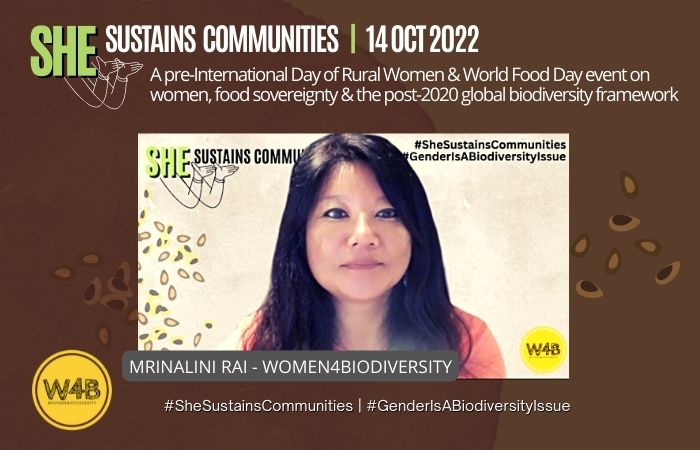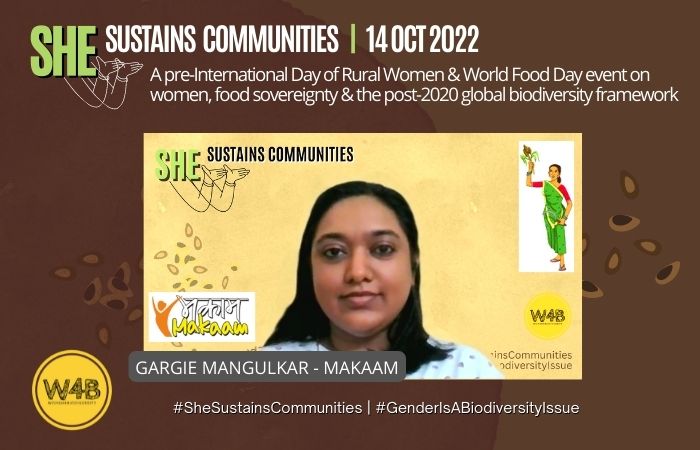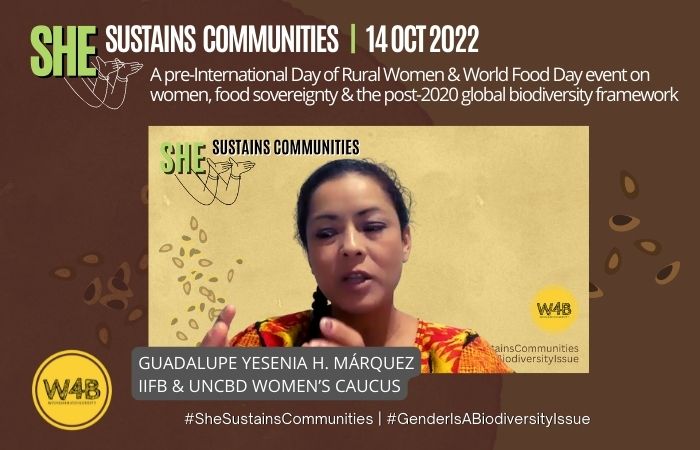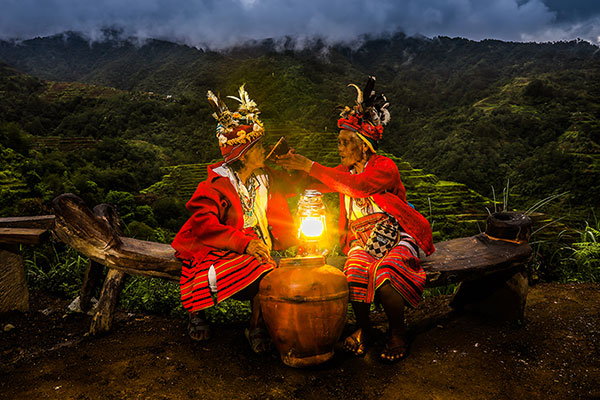By Sharon Nyambura Ruthia, Women4Biodiversity
Watch the recording in English, Spanish, and French here.
In celebration of the International Day of Rural Women (15 October) and World Food Day (16 October), Women4Biodiversity held “She Sustains Communities,” a virtual event on women, food sovereignty and the post-2020 global biodiversity framework.
The event, held last 14 October, brought together women who shared insights and experiences of rural women and their contribution in food sovereignty through sustainable use of natural resources and biodiversity conservation and restoration. The event also facilitated discussion on the need for a gender-responsive post-2020 global biodiversity framework for rural women to be truly empowered in ensuring food security for their communities and conserving and restoring ecosystems
In her opening remarks, Women4Biodiversity Director Mrinalini Rai highlighted the grave effects of gender inequalities experienced by women and girls as a result of poverty and hunger more so in the developing countries.
To address this, Rai said that a “gender approach to food security can enable shifts in gender relations and assure that all people regardless of gender, benefit from, and are empowered by development policies and practices to improve food security and nutrition.”

One of the panelists, Gargie Mangulkar, national coordinator of MAKAAM, a pan-India alliance of women farmers, said that women play a big role in food sovereignty. Historically, women make up a large percentage of the agricultural production labour force.
Mangulkar pointed out that women are at the forefront protecting their land, forests and other commons and are the repository of traditional knowledge and are still combating the effects of climate change.
In particular, the women MAKAAM work with came together and organized themselves into smaller farming groups to practice natural agroecological farming free from chemicals and fertilizers, which are contributors to the adverse effects of climate change and biodiversity loss. Through this initiative, food production significantly increased, that the rural women were able to provide food to neighbouring communities even amid the COVID pandemic.

Meanwhile, another fundamental contribution by rural women are as knowledge holders and seed keepers, as shared by Guadalupe Yesenia Hernández Márquez, a Mexican indigenous biologist, academic, and sustainability advocate. She is also a member of the International Indigenous Forum on Biodiversity (IIFB) and the UNCBD Women’s Caucus.
Márquez shared about the rich traditional knowledge and practices of Mexican indigenous women in preparing heritage drinks mezcal and tejate, which has ingredients from endemic species.
Márquez also said that women contribute to the storage and preservation of indigenous seeds. Rural and indigenous women have created avenues for information exchange on climate change mitigation. For instance, rural women have initiated projects of planting certain crops such as mushrooms in environments they can best thrive in.

While great milestones have been achieved in halting biodiversity loss and increased biodiversity conservation by these local women in their quest to achieve food sovereignty, these women still battle historical injustices such as lack of identity as farmers and recognition of their massive contribution to biodiversity, climate and environment. Limited rights and access to natural resources such as land is still a challenge being experienced by rural women, owing to the fact that some of these communities are largely patriarchal and are still bound by redundant cultural beliefs.
Progressive land and economic rights legislations in favor of gender equality need to be a priority. One of these progressive legislations is the post-2020 global biodiversity framework set to be adopted at the Fifteenth Meeting of the Conference of the Parties to the Convention on Biological Diversity (CBD COP15). This framework will be a game changer for women and biodiversity with the genuine recognition of women and girls as key actors and their rights to full and effective participation and decision-making, equal access to and ownership of natural resources being cemented in the framework.
A proposal for a stand-alone gender equality target in the post-2020 global biodiversity framework, Target 22, puts forward recognition of women and girls’ equal rights and access to land and natural resources, which both Mangulkar and Márquez said are important for women’s food sovereignty.


